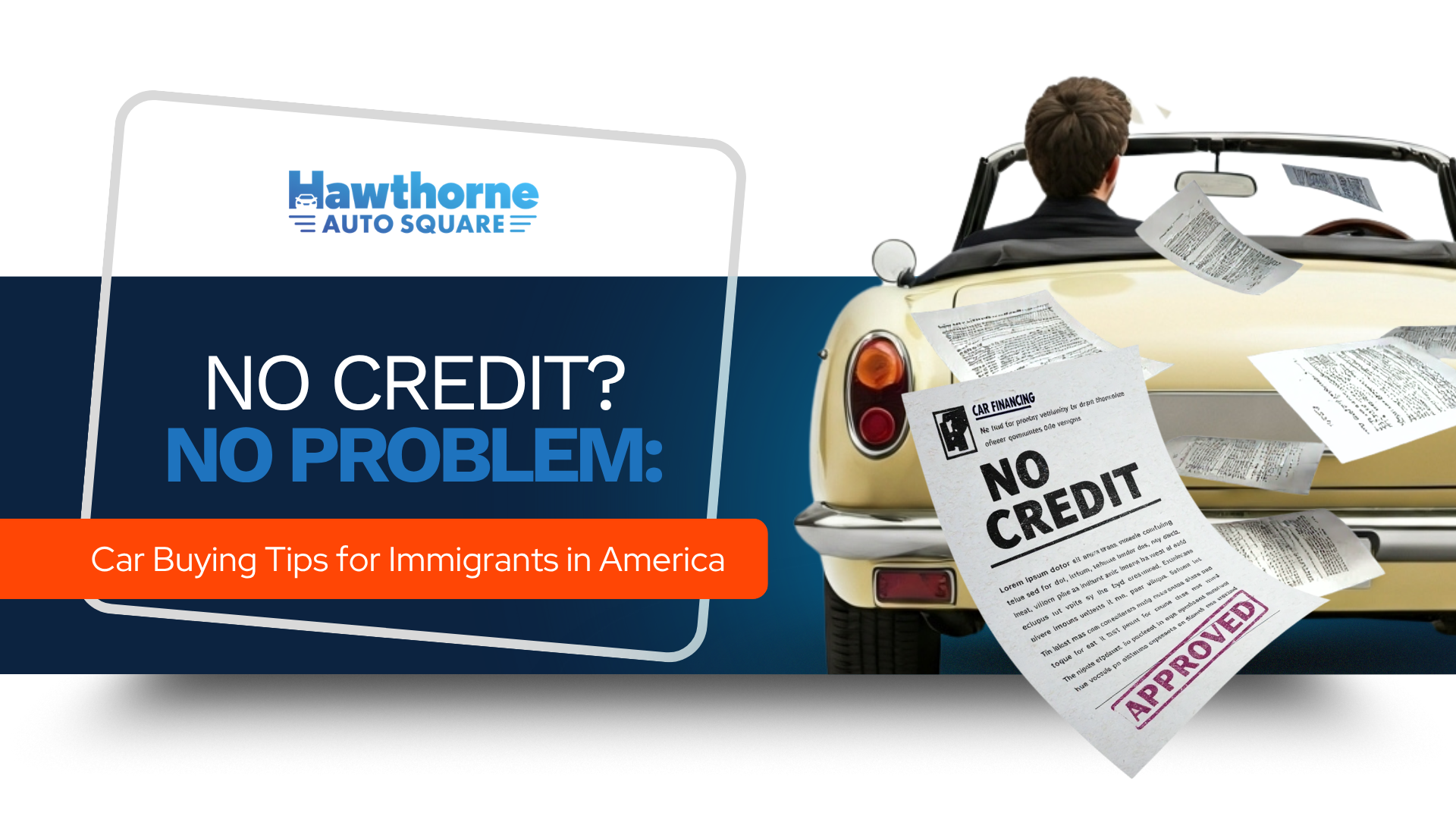
- SALES : (866) 707-7664
- PAYMENTS : (866) 902-7955
- 11646 PRAIRIE AVE, HAWTHORNE, CA 90250
- MON - SAT 8AM - 8PM | SUN 10AM - 6PM
- SALES : (866) 707-7664
- PAYMENTS : (866) 902-7955
- 11646 PRAIRIE AVE, HAWTHORNE, CA 90250
- MON - SAT 8AM - 8PM | SUN 10AM - 6PM
Don’t Get Blindsided: Factor These Costs Into Your Used Car Budget

Buying a used car can be exciting, especially when you know about the hidden costs of buying a pre-owned vehicle so you can factor them into your used car budget. Along with the sticker price and documentation fees, there are additional costs you should know about. For example, there may be finance charges or insurance costs to consider. Read on to learn the most common expenses to include in your budget.
Beyond the Sticker Price: Understanding the True Cost of a Used Car
Along with the listed sale price, there are often additional costs of buying a used car that many people may not know. At Hawthorne Auto Square, we’re careful to let our customers know what to expect beyond the makes, models, body types, and mileage. You’ll know what to expect and can avoid unexpected surprise fees and future costs.

Hidden Costs of Buying a Used Car
The following are five of the most common unexpected used car buying expenses and hidden costs you may encounter when buying a used car.
1. Unexpected repair costs
Unfortunately, many people face used car repair costs soon after buying a used vehicle. This is one of the biggest drawbacks when you purchase from a private seller, as they don’t offer a warranty and may not provide full transparency about the vehicle’s history and condition. The Federal Trade Commission Used Car Dealer’s Guide rules for consumer protections don’t apply in this case, and they aren’t obligated to take responsibility for future issues you have with the car.
If you purchase a vehicle from a private seller or an auto auction, it’s recommended to set aside at least $5000 for maintenance and repairs to ensure you’re taken care of if something goes wrong.
2. Depreciation
Car depreciation is calculated based on the type of car, its age, and its mileage. It also depends on whether there are new models with redesigns that can reduce the demand for an older model. If you were to purchase your car brand-new, it would lose 20% of its value within the first year and 60% over the first five years. Purchasing an older model is usually a better deal overall, even if the mileage is higher.
Used car depreciation in California can be slowed down by performing regular maintenance, maintaining the car’s appearance, avoiding accidents or damage, and limiting modifications.
3. Finance charges
Used car financing can be an expensive addition to your purchase, as it includes interest, taxes, and processing fees. Pre-approval lets you consider these additional costs and helps you decide your actual car budget.
4. Insurance premiums
You need insurance to drive a car off the lot in California. The average cost of used car insurance is just over $2500 annually for full coverage, a figure you must include when deciding on your budget. Finding affordable coverage may mean shopping around and looking into different companies and coverage levels, but it could save you hundreds per year.
5. Maintenance costs
Used car maintenance costs vary depending on the age of the vehicle and its make and model. For example, it may be harder to find parts for a foreign car. Keeping your car well-maintained extends its life and reduces depreciation, making it well worth the added expense.
Budgeting for a Used Car: Tips and Tricks
Below are some common tips and tricks for budgeting for a used car:
- Remember used car taxes and fees, used car registration, and other costs when saving for a car
- A used car pre-purchase inspection is often worthwhile, as it could save you a lot of hassle and stress in the future
- Consider the cost of future car payments, gas, insurance, and repairs each month, and be realistic about what you’ll be able to afford
- Buying off a lot gives Californians more consumer protection than purchasing a used car privately
Should You Buy or Lease a Used Car?
The monthly payments may be higher when you buy a car, but in the end, you’ll own it outright. Leasing a car costs less each month, but you have to return the car when the lease is up. This may mean you can afford to drive a more expensive vehicle, but you’ll also be on the hook for keeping it in good working order, and you’ll never own it as an asset.
Deciding between the two options is a question of preference. Would you prefer to drive a newer model and give it back after a certain term, or do you want to buy a car and eventually own it?
If you’re in the market to buy or lease a used car, check out Hawthorne Auto Square’s premier used car lot.
What Is Gap Insurance and Do You Need It?
GAP insurance, or Guaranteed Asset Protection, is a loan/lease insurance policy. It’s important because if your used car is totaled in an accident or stolen, your insurance only covers the depreciated amount the vehicle is worth, even if your loan or lease amount is underwater or higher than the car’s worth because of fees, taxes, etc. The GAP insurance can cover the rest of the loan or lease, so you’re not left paying off a car you no longer have.
You may not need GAP insurance for a used car, especially if you made a large down payment. However, the premiums may cost more than the rest of your loan.
Contact Us Today
Budgeting for a used car shouldn’t be stressful. The experienced team at Hawthorne Auto Square can get you the best deal for your money. We offer in-house financing options to make it easy to get your hands on the used car of your dreams. Whether you’re looking for a reliable family car or a sleek, upscale model, our team will get you an inspected, safe, and reliable vehicle you can count on.
Whether you’re looking to sell your vehicle, upgrade, or purchase a used car from us, our friendly team is here to help. Contact us today or check out our current listings and find out why our customers leave satisfied every time.
Frequently Asked Questions
How much should I budget for taxes and fees when buying a used car?
The exact number depends on your location and overall car budget. It’s a good idea to budget at least a few thousand dollars for additional fees, taxes, and other costs.
How can I avoid overspending or being surprised by additional costs?
When used car shopping, determine your budget beforehand, do your research, and prepare for any additional costs like insurance, fees, repairs, etc.
Are there any tax benefits to buying a used car?
Yes. If you purchase a used car for business use, you can write off the depreciation amount on your taxes. While it won’t net you thousands, you could save a few hundred dollars a year on your tax bill.
What should my down payment be when buying a used car?
It’s a good idea to put down at least 10% of the total amount, but 20% is recommended for lowering your monthly payments and making the car easier to afford long term.
Latest News


Why Should I Buy a Used Toyota Camry?

Bankruptcy and Car Ownership: How BHPH Can Help


Used Car Price Trends for 2025: What Buyers & Sellers Need To Know
Get approved
It only takes a few minutes and won’t affect your credit.
- Pre-Inspected Cars
- Clean Title
- Under Warranty
Latest Videos
What Do I Need To Buy A Car - Hawthorne Auto Square
Second Chance for a New Car - Hawthorne Auto Square
Pre Approved Auto Lone – Hawthorne Auto Square
- SALES : (866) 707-7664
- PAYMENTS : (866) 902-7955
- 11646 PRAIRIE AVE, HAWTHORNE, CA 90250
- MON - SAT 8AM - 8PM | SUN 10AM - 6PM
© 2025 Hawthorne Auto Square. All Rights Reserved. Website Designed by: Ad Leverage | Privacy Policy | Terms of Service | Manage Cookies | DSAR |License #91864
© 2025 Hawthorne Auto Square. All Rights Reserved. Website Designed by:
Ad Leverage | Privacy Policy | Terms of Service
License #91864

